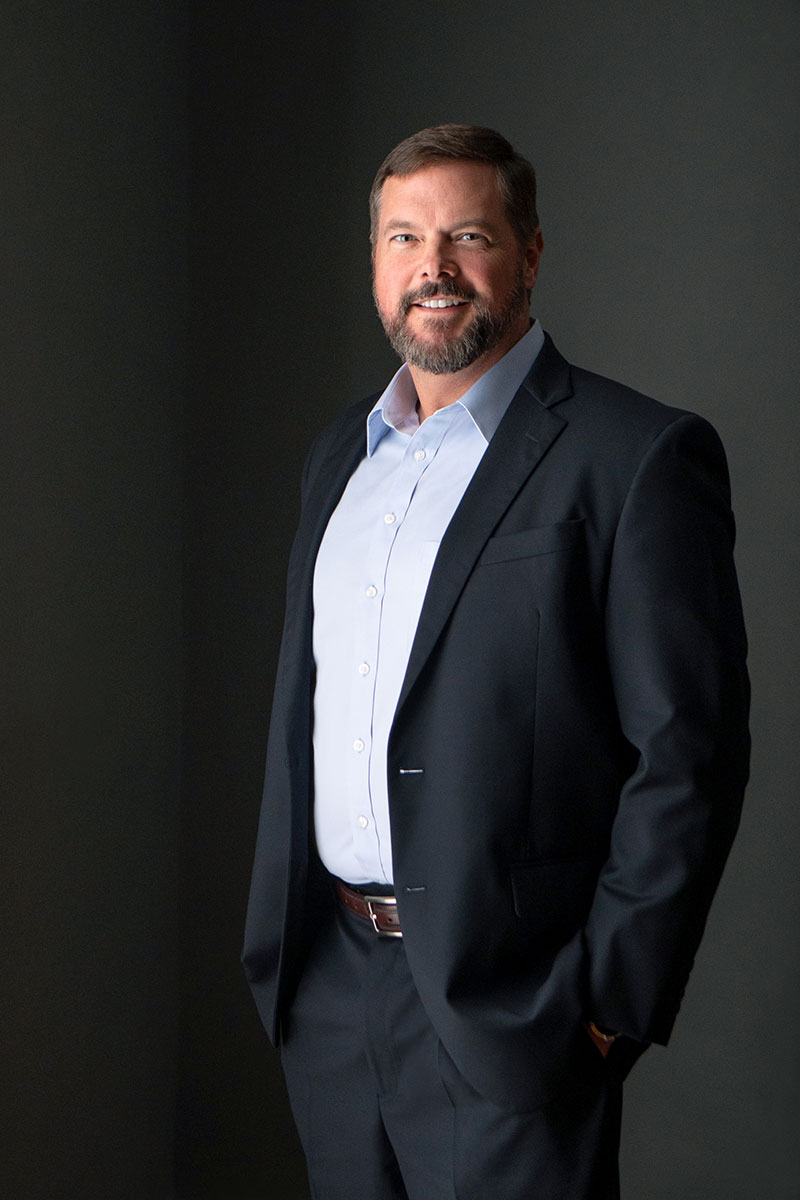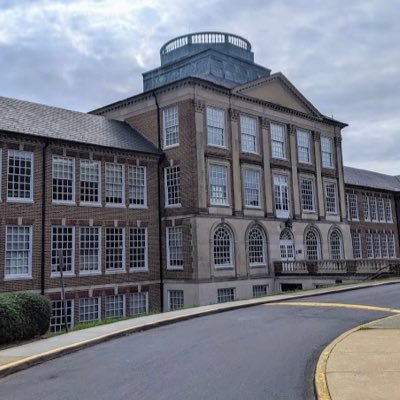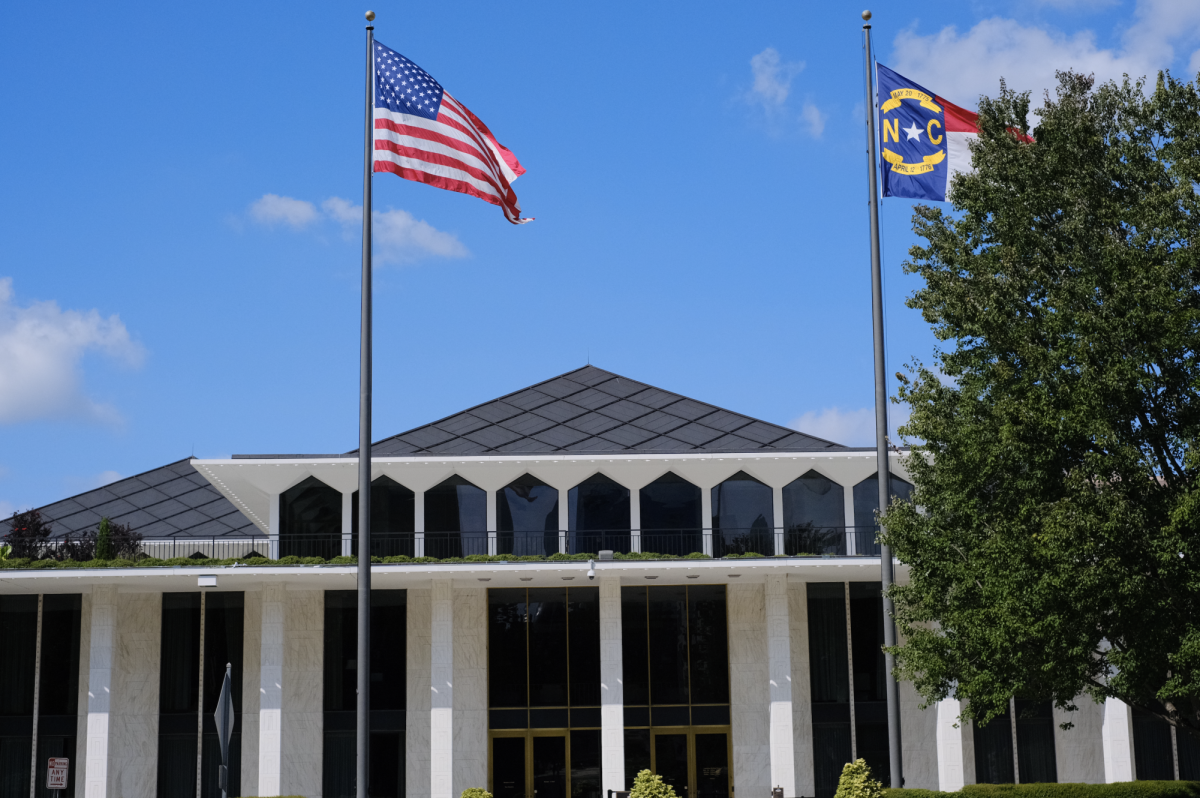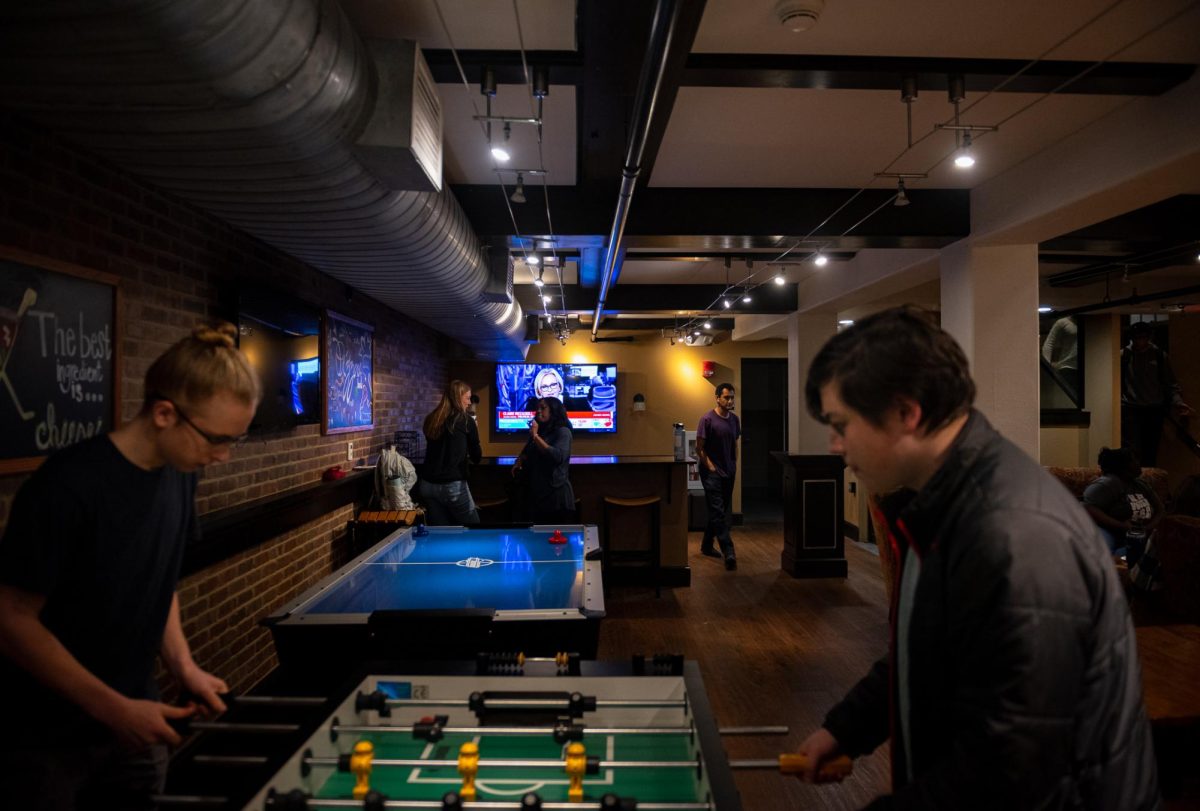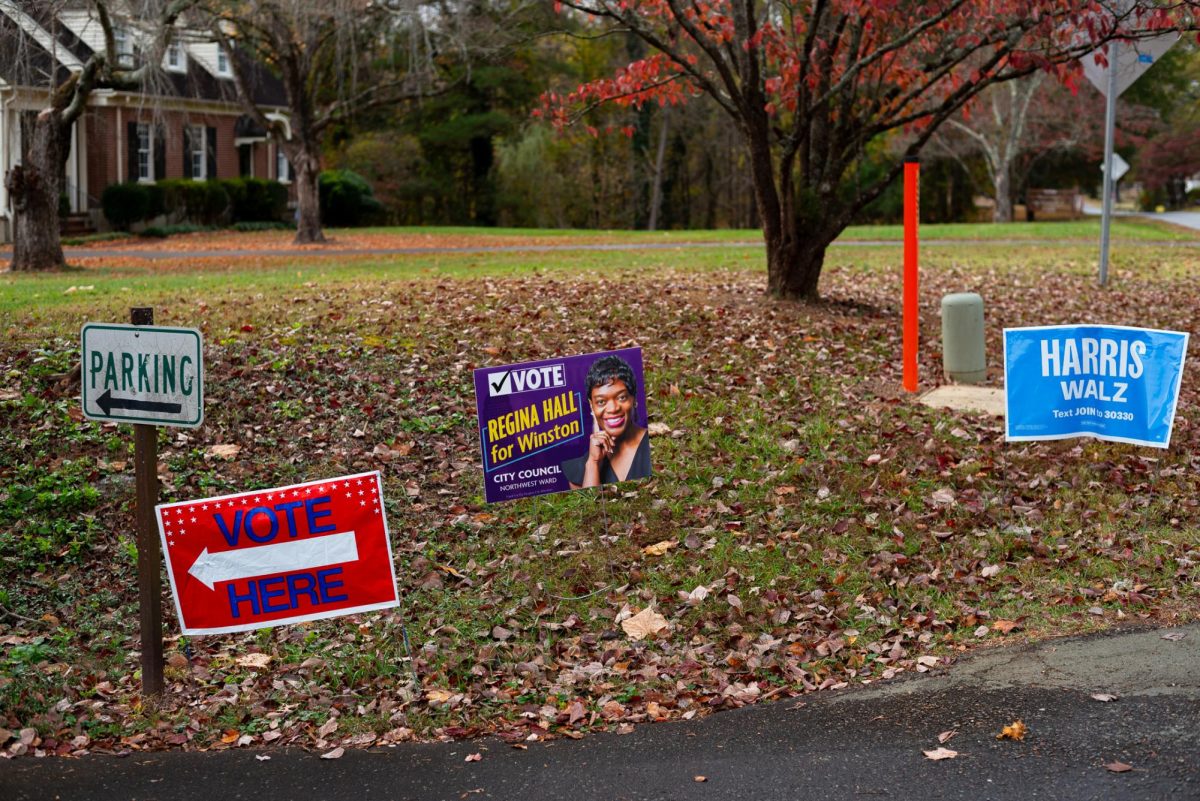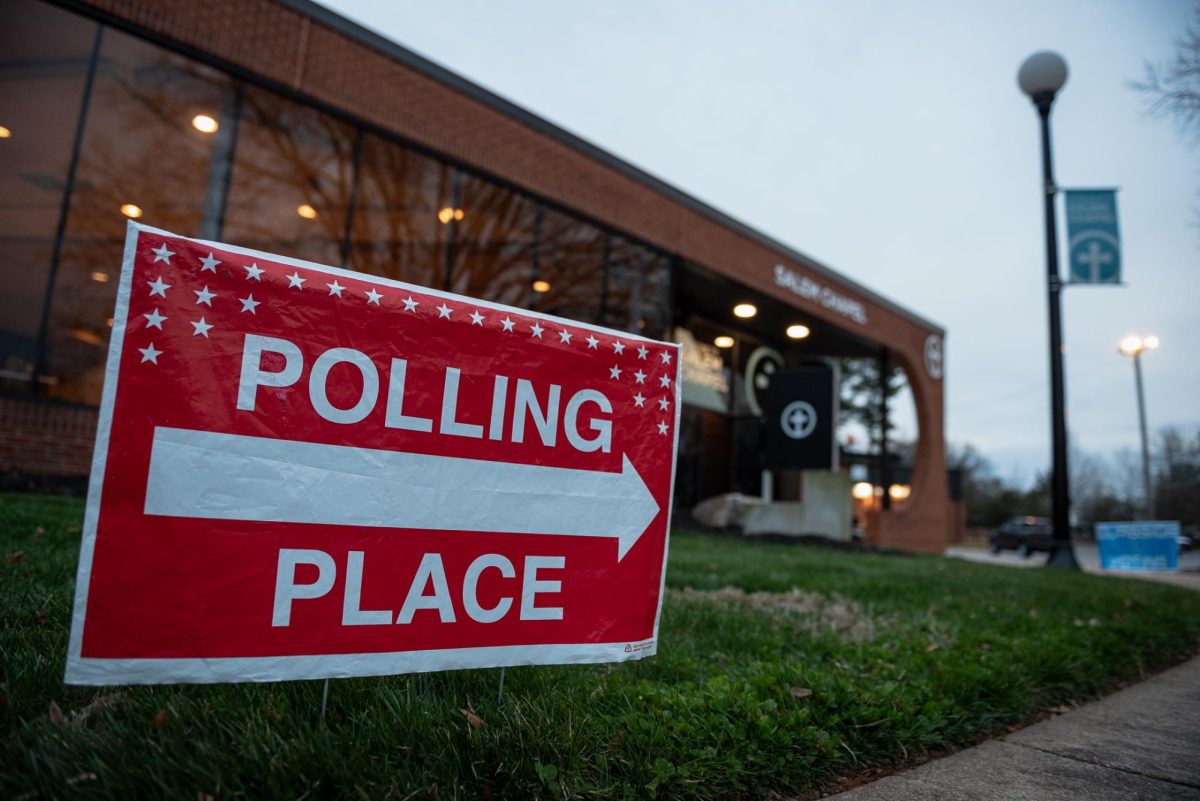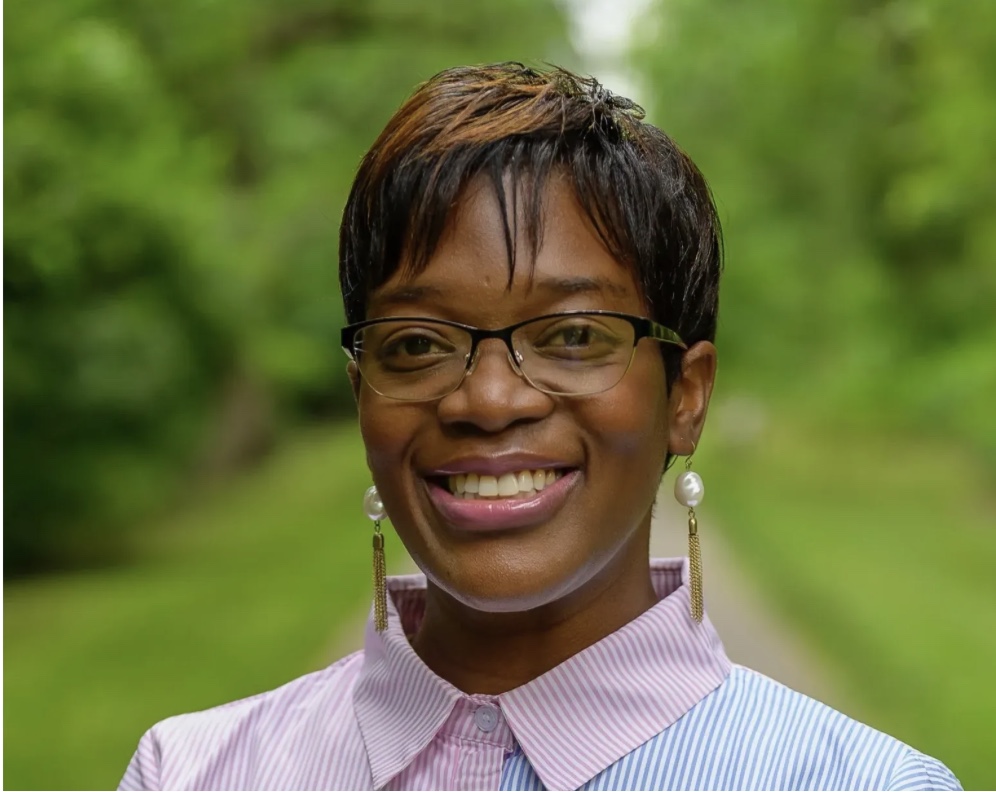Jimmy Hodson, a candidate for the Northwest Ward seat on the Winston-Salem City Council, sat down with the Old Gold & Black to discuss his platform’s priorities, professional background and vision for the city.
The Old Gold & Black had previously attempted to contact Hodson for a companion piece to an article featuring Regina Hall, the Democratic candidate for the City Council seat, but did not receive a response. After the article was published, Hodson reached out to the Old Gold & Black, explaining he did not see our messages until after publication and requested an interview.
About Hodson
Hodson moved to Winston-Salem around 30 years ago when the furniture manufacturing company he worked for relocated to the area from Georgia. Although most employees returned to Georgia when the business closed, Hodson decided to remain. He met his wife, Rebecca, with whom he raised three now-adult children and shares six grandchildren.
“I’ve called Winston Salem home longer than just about anywhere else in the world,” Hodson said. “I’ve been living in the same house in the Northwest Ward for about 25 years now and just love the area and the people.”
Personal and professional experience
Hodson served in the U.S. Army from 1987 to 1991, where he worked as a Lance Missile Crew member, overseeing the direction of ballistic missiles. Following his military service, Hodson shifted to the tech industry, where he has amassed over 30 years of experience in roles ranging from web developer to computer operator.
Hodson is currently a software product manager for a company in Greensboro, where he reports working with business leaders, customers and other stakeholders. Outside of work, he has served on his church board for nine years at United Family Church in Lewisville, North Carolina, managing the church budget and the church community’s priorities. He believes these experiences managing a variety of opinions and needs while managing financial matters have prepared him for governance.
In his approach to local government, Hodson emphasizes the importance of listening to community members, finding common ground and personal integrity.
“Some people in leadership have a plan and want to implement it, and ‘it’s my way or the highway,’” Hodson said. “I don’t view city council that way at all. We’re being entrusted with representing the needs of our citizens in a productive and beneficial way that honors the faith and trust they put in us by putting us in office.”
Hodson sees compromise as a key component in his approach to governance.
“Winston-Salem is a diverse group of people from different backgrounds and priorities,” Hodson said. “You have to be willing to … proactively seek out compromise to get the best solution.”
Priorities for City Council
Hodson’s vision for the city council is rooted in public safety, economic development and addressing homelessness and affordable housing.
“I’ve lived in the city for a long time, I’ve been … looking at ways to be more active in my local community, and … be empowered to enact some of the changes that so many of us might complain about,” Hodson said.
He cites the safety and security of Winston-Salem residents as his number one priority, which he believes is undermined by the understaffing of the police force. He emphasized the need for competitive compensation for the police and firefighters to avoid losing workers to sister cities.
“We’re not able to fully staff every available class for new officers because there’s just not enough people applying,” Hodson said. “And I think that’s a shame. [Ideally,] we should be turning away people who want to join the police force because our police force is so highly regarded.”
Hodson lists economic development as his second priority. Economic development, he believes, will require attracting high-paying jobs to offset the limited tax contributions from the city’s non-profit healthcare-focused industry.
“We’ve lost major industries in Winston-Salem, and … we have to do everything we can to attract paying jobs to the city,” he said. “The more we can do that, the better life will be for people that live here.”
He plans to use tax incentives to draw businesses, make vacant property available for better rates and reduce regulations and restrictions on industries that want to move to the area.
In addressing the city’s homelessness problem, Hodson calls for a more proactive approach, noting that while many initiatives to help the homeless are well-intentioned, they often lack long-term solutions to stop homelessness from happening.
“We seem to want to default to giving [homeless] people a home and [putting] them in there to take care of them,” Hodson said. “I think that just hides the problem.”
Hodson advocates for a more data-driven approach identifying the root causes of homelessness, which would enable more targeted support. He provided an example of giving different assistance to people with mental health issues versus those facing economic hardship.
He also called for greater accountability for nonprofits in tracking measurable outcomes for money received from the city.
“I think there are a lot of nonprofits that the city gives money to [to address homelessness], and we’re not really seeing the effectiveness or the ROI (Return on Investment) on that money that we’re spending…” Hodson said. “There are some agencies who have come back time and time again for city funds, and it just seems like … we’re a silent investment partner. I don’t think that’s an appropriate use of the taxpayer funds.”
Hodson also wants to address housing, but he reported doubt about whether taxpayer dollars should be spent on building more affordable housing.
“I don’t think that the city or or any local government should be in the business of building homes,” Hodson said, suggesting that city council should instead incentivize builders to construct affordable housing among other initiatives.
“We should be getting people to a point where they can afford more of a house,” Hodson said. My goal is to give people better paying jobs, not build cheap houses for them.”
Why local government matters — including to Wake Forest students
Local government, Hodson said, impacts a person’s daily life most directly, although its importance can be forgotten during national elections.
“Your property taxes, your water, your trash pickup, the zoning that happens in and around your neighborhood, the roads that you drive on every day to get to work — if you have a problem, you are almost assured you can reach out and talk to a city council member,” Hodson said. “You will not be able to do that with the governor or senator, definitely not the president. The people representing you live right down the street.”
Hodson stressed that everyone has a civic duty to vote and engage in local government, including Wake Forest students — regardless of whether they plan to live in Winston-Salem temporarily or long-term.
“I think Wake Forest students, for their time here, are citizens of Winston-Salem,” Hodson said. “I don’t think that they should look at this any differently than if they lived here full time … The community that Wake Forest has is just as much a part of Winston-Salem as any other community.”
Recalling recent experiences working at the polls, Hodson noted the high turnout of Wake Forest students: “It was just so wonderful to see them coming in groups of five or six … I’m glad there’s so much participation,” he said.
He continued: “I just encourage Wake Forest students — all of them — to vote and make their voices heard.”


